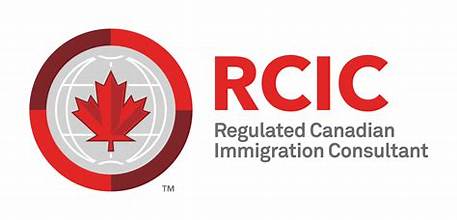Frequently Asked Questions About Traveling to Canada from India
Travel limitations imposed by COVID-19, as well as airline cancellations from India to Canada, have prompted many immigrants to postpone their intentions to relocate to Canada or visit relatives. With the India-Canada airline ban now removed, here’s everything you need to know to plan your trip from India to Canada.
When will the suspension of direct flights between Canada and India be lifted?
Following a five-month hiatus, Transport Canada stated that direct flights between India and Canada would resume on September 27, 2021. (after 11:59 pm EST on September 26).
💡Tips: Before arranging your trip, check the Transport Canada website for any updates on travel warnings, including flight service from India.
At current time, who can go from India to Canada?
If you match any of the following conditions, you can travel from India to Canada:
- If you are a Canadian legal resident, a person registered under the Indian Act of Canada, a permanent resident (PR) or a protected person, you are eligible to apply (refugee status)
- If you have a valid Confirmation of Permanent Residence (COPR), a valid work permit (with confirmation of approval) and a job offer, or a study permit from an authorized Designated Learning Institution (DLI): you are eligible.
- If you are a foreigner who has been completely immunized with a vaccination licensed in Canada and are traveling for necessary or discretionary reasons,
- If you are visiting direct family members who are Canadian legal resident, permanent residents, or foreign employees on a temporary basis.
💡Tips: Border controls are subject to change in accordance with Government advice and legislation. Before finalizing trip plans, please ensure that you are eligible to enter Canada.
What are the prerequisites for entering Canada on a direct flight from India?
Passengers on a direct trip from India to Canada must satisfy the following requirements:
- At Genestrings Laboratoryn in New Delhi’s Indira Gandhi International Airport, obtain a negative COVID-19 molecular test, which is commonly known as an RT-PCR test. Only tests from this laboratory are now acceptable, even if your flight originated in another location in India.
- Before you board your flight, you must show the airline employees the negative test report obtained by Genestrings Laboratory.
- This COVID-19 test must be completed no sooner than 18 hours before your time of departure.
- Travelers must update their information on the ArriveCAN application or website, including vaccination records and quarantine plans, among other things (different from the Arrive app for newcomers)
- Face masks will be compulsory for all passengers on flights and in airports.
Airlines will not let passengers who do not satisfy these conditions to board the plane. There are few exceptions for travelers who have already tested positive and recovered with COVID-19.
How can I schedule a COVID-19 test at Delhi International Airport?
A COVID-19 RT-PCR test at the Indira Gandhi International Airport in New Delhi can be booked online. You must pick the “RT-PCR” test and reserve a time slot. You will be asked to give basic personal details, along with proof of identity and flight information. Each test will incur a charge of INR 500 (about $8.50 CAD). Within 8 to 10 hours, you will be delivered the test result, which can also be prioritized based on your departure time.
You can choose a speedier COVID-19 molecular test as well, which costs INR 4,900 (about $82 CAD) and provides a result in 60 – 90 minutes.
At the moment, only direct flights from New Delhi are authorized into Canada. If you are traveling from another Indian city, you must allow enough time in New Delhi to get your COVID-19 exam results.
Is a molecular test required if I have earlier recovered from COVID-19?
If you have previously tested positive for COVID-19, you must show a positive molecular test result, provided by an Indian accredited laboratory. The positive result must be measured using samples taken 14 to 180 days before your anticipated journey to Canada.
If you feel you’ve had COVID-19 in the past but don’t have a positive test result, you won’t be qualified for the exemption. You will need to have a COVID-19 RT-PCR test result from Genestrings Laboratory in Indira Gandhi International Airport.
Is it necessary for me to be completely immunized against COVID-19 before entering Canada?
Foreigners who have not been completely vaccinated with a vaccine licensed in Canada will be permitted to enter the country only under limited situations. You can currently enter Canada regardless of your immunization status when you:
- Are a Canadian permanent resident or citizen
- Acquired a COPR
- Are an approved temporary foreign worker having a valid work permit and employment offer (unless your job belongs to a field that does not require a work permit)
- Are a foreign student who has a valid study permission from an authorized DLI
However, qualified travelers who are not completely vaccinated will be forced to follow Canada’s quarantine regulations.
At the moment, passengers who have not been completely vaccinated with a vaccination licensed in Canada will be denied entry into the country for discretionary or optional purposes. The AstraZeneca (or COVISHIELD) vaccine and the Bharat Biotech (or COVAXIN) vaccine are both authorized in Canada. As a result, if you have taken full doses of either of these vaccinations at least 14 days before your intended departure, you will be permitted to enter Canada for discretionary purposes.
What should I do if the vaccination I’ve been given isn’t licensed in Canada?
If you’ve gotten a vaccination that isn’t licensed in Canada, you’ll be able to enter the country only if you’re a Canadian citizen, PR, COPR holder, or have a valid work or study visa.
Please note that COVAXIN (Bharat Biotech vaccine) has been licensed by Health Canada as of November 30, 2021. You will be considered completely vaccinated if you have gotten both doses of COVAXIN.
Will I have to go through quarantine when I arrive in Canada from India?
International visitors arriving in Canada by air must follow quarantine procedures at least until they get their initial post-arrival COVID-19 test results. During this time, you will need to update your information on ArriveCAN app on a regular basis.
You are exempt from the 14-day quarantine duration in case you have been completely immunized with a vaccination licensed in Canada. You will, however, need to do a post-arrival COVID-19 RT-PCR tests in addition to the pre-departure COVID-19 exam. You will be expected to remain in quarantine until your COVID-19 test results are negative.
In case you have not been completely immunized with a vaccination licensed in Canada, you will be quarantined for 14 days. In addition to the pre-departure COVID-19 tests, you will be required to complete two more COVID-19 RT-PCR tests after arrival, on Day 1 and Day 8. If your Day-8 COVID-19 molecular test results are negative, you will be able to leave quarantine on Day-15 following your arrival in Canada.
💡Tips: If you are an overseas student visiting Canada during the COVID-19 epidemic, check to see whether or not your Designated Learning Institute has made preparations for students to quarantine.
Is it possible for me to go from India to Canada via a third country?
You may still take an indirect flight from India to Canada. If you enter Canada through a third country, you must present a pre-departure negative COVID-19 RT-PCR test result acquired in the stop-over nation within 72 hours after your departure to Canada.
What procedures are there for people traveling from India to Canada via a third country?
Keep the following in mind when creating an itinerary that includes an indirect route to Canada:
- Within 72 hours of your intended departure to Canada, you must complete a pre-departure COVID-19 molecular test in the third nation. You will only be allowed to board planes if your test results are negative. The findings of COVID-19 tests performed in India will not be accepted for travelers traveling to Canada via a third country.
- Some nations may impose entrance or transit restrictions on people arriving from India.
- For the third nation, you may need a transit or travel visa. Before making any airline reservations, make sure to verify the visa requirements of your stop-over location.
- COVID-19 testing may not be offered for people in transit at all international airports. If you arrive in Canada via a third country that does not provide COVID-19 testing for transit passengers, you will need to depart the airport and maybe arrange for housing while you wait for your COVID-19 test results.
- If you test positive while traveling, you may be required to follow quarantine laws imposed by the third nation or return to your original port of departure.
Is it possible for me to fly to Canada in case my CoPR has expired?
Many people have been unable to travel because to continued COVID-19 travel restrictions. If your Confirmation of Permanent Residence (CoPR) has expired while you are awaiting the lifting of the travel restrictions and airline ban, you will need to get your CoPR renewed.
You will not be allowed to enter Canada if your travel documents are expired. Before purchasing airline tickets or making trip plans, double-check the validity of your CoPR. Immigration, Refugees, and Citizenship Canada (IRCC) will contact all persons whose CoPR has expired to see if they are still able and willing to travel to Canada, and will reissue papers as necessary.
Whether you’re an Indian newcomer hoping to start a new life in Canada as a permanent resident, or an international student or foreign worker with ambitions to work in Canada, you may plan your relocation to Canada now that the flight ban has been removed. Before making travel plans, visit the Government of Canada’s travel website for the most up-to-date information on travel restrictions, quarantine procedures, immunization, and COVID-19 testing process.



